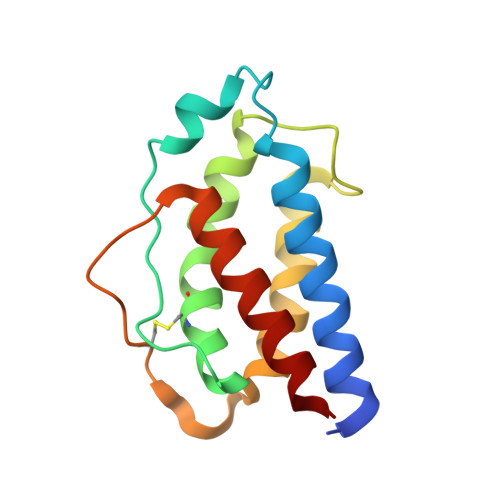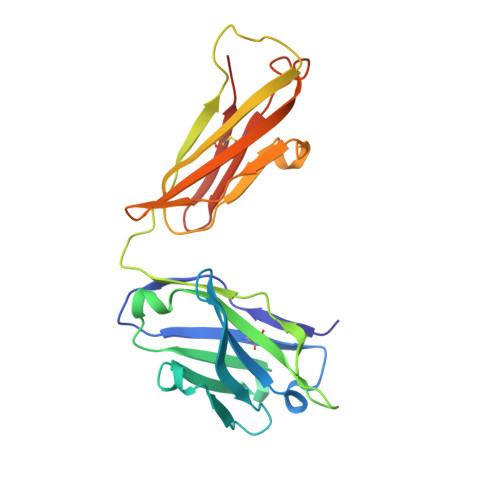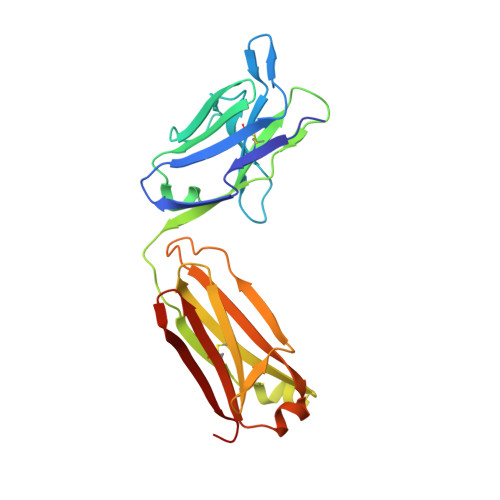Improved cancer immunotherapy by a CD25-mimobody conferring selectivity to human interleukin-2.
Arenas-Ramirez, N., Zou, C., Popp, S., Zingg, D., Brannetti, B., Wirth, E., Calzascia, T., Kovarik, J., Sommer, L., Zenke, G., Woytschak, J., Regnier, C.H., Katopodis, A., Boyman, O.(2016) Sci Transl Med 8: 367ra166-367ra166
- PubMed: 27903862
- DOI: https://doi.org/10.1126/scitranslmed.aag3187
- Primary Citation of Related Structures:
5LQB - PubMed Abstract:
Interleukin-2 (IL-2) immunotherapy is an attractive approach in treating advanced cancer. However, by binding to its IL-2 receptor α (CD25) subunit, IL-2 exerts unwanted effects, including stimulation of immunosuppressive regulatory T cells (T regs ) and contribution to vascular leak syndrome. We used a rational approach to develop a monoclonal antibody to human IL-2, termed NARA1, which acts as a high-affinity CD25 mimic, thereby minimizing association of IL-2 with CD25. The structure of the IL-2-NARA1 complex revealed that NARA1 occupies the CD25 epitope of IL-2 and precisely overlaps with CD25. Association of NARA1 with IL-2 occurs with 10-fold higher affinity compared to CD25 and forms IL-2/NARA1 complexes, which, in vivo, preferentially stimulate CD8 + T cells while disfavoring CD25 + T regs and improving the benefit-to-adverse effect ratio of IL-2. In two transplantable and one spontaneous metastatic melanoma model, IL-2/NARA1 complex immunotherapy resulted in efficient expansion of tumor-specific and polyclonal CD8 + T cells. These CD8 + T cells showed robust interferon-γ production and expressed low levels of exhaustion markers programmed cell death protein-1, lymphocyte activation gene-3, and T cell immunoglobulin and mucin domain-3. These effects resulted in potent anticancer immune responses and prolonged survival in the tumor models. Collectively, our data demonstrate that NARA1 acts as a CD25-mimobody that confers selectivity and increased potency to IL-2 and warrant further assessment of NARA1 as a therapeutic.
- Department of Immunology, University Hospital Zurich, University of Zurich, CH-8091 Zurich, Switzerland.
Organizational Affiliation:


















